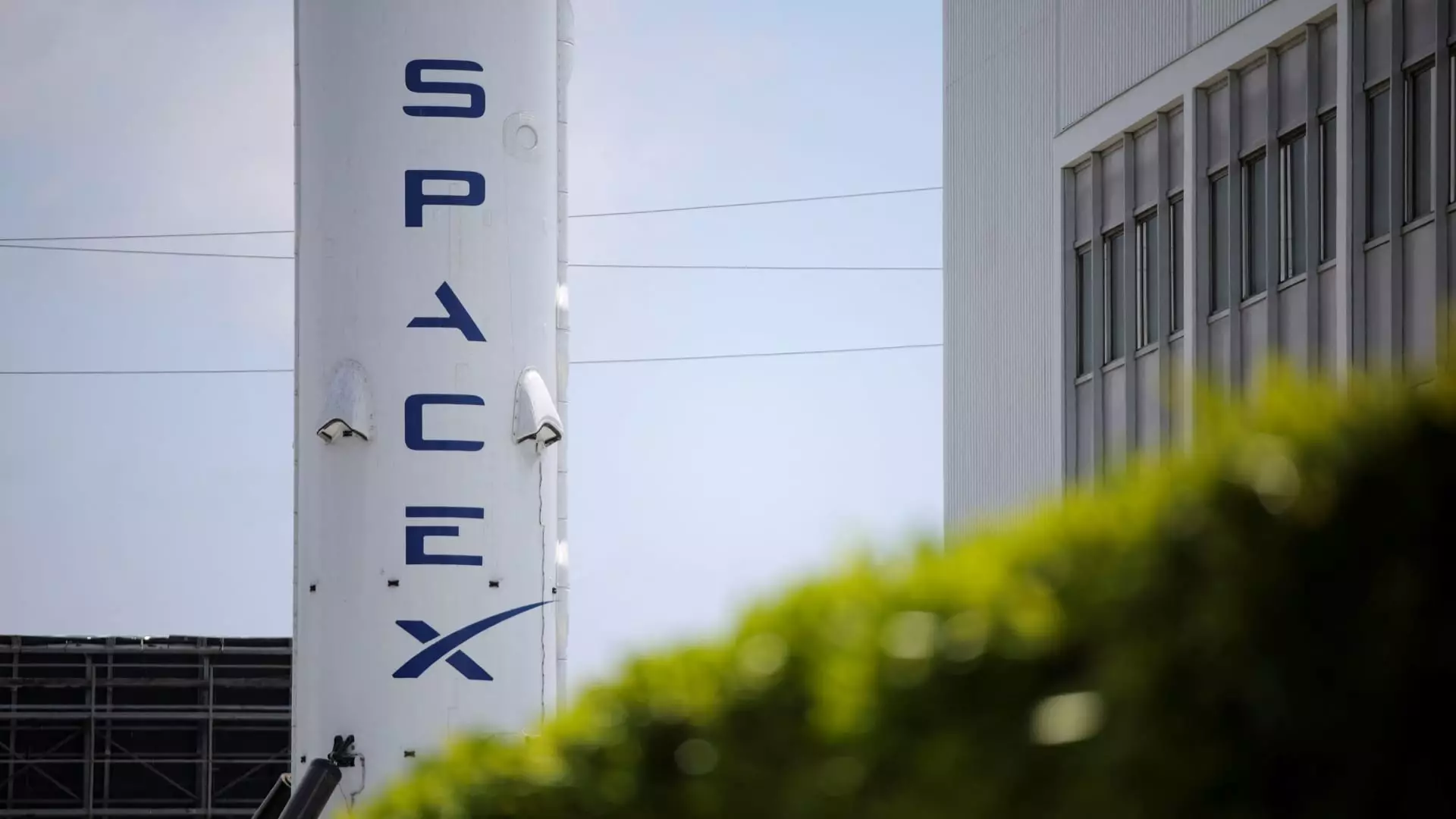In a surprising turn of events, the White House’s directive to review billions in SpaceX contracts highlights a troubling intersection of politics and national security. The order comes on the heels of a public spat between President Donald Trump and Elon Musk, a billionaire who has undeniable influence over America’s aerospace industry. While our society anticipates advancements in space exploration, the underlying political motivations behind government contracts reflect more about personal vendettas than they do about progress. This incident underscores a troubling trend where the whims of the powerful could jeopardize national interests, and it is essential to unpack the implications of such bureaucratic maneuvering.
The Consequences of Personal Hostility
The root of this review seems less about the merits of SpaceX’s contracts and more a product of Trump’s personal disputes. For a company committed to innovation and efficiency, the impending scrutiny serves as a disheartening reminder of how personal grievances can dictate significant actions. With over $22 billion in federal contracts at stake, the potential for retaliation against Musk not only poses questions of legality but also raises red flags about the ethical boundaries of governance.
Critics argue that the personal egos in play could disrupt a thriving partnership that has propelled America towards an era of space exploration and defense leadership. While the White House claims to be committed to a “rigorous review process,” the subjective nature of such assessments refutes the notion of objectivity. Rather than focusing on the benefits that SpaceX brings to national security via satellite launches and other essential missions, the dialogue shifts to petty squabbles, eroding the credibility of democratic institutions.
The Pentagon’s Dilemma: Balancing Politics with Necessity
The Department of Defense is caught in a precarious situation as they contemplate diminishing SpaceX’s role in the development of a new missile defense system. Given SpaceX’s expertise and established track record, the looming decision could reflect a needs-based approach countered by politically motivated misgivings. Decision-makers might prioritize a newfound political allegiance over the technical and operational capacities that SpaceX has proven time and again.
Such a transition would come with consequences that ripple throughout the aerospace defense community, affecting everything from innovation cycles to funding protocols. If the US government starts to prioritize petty rivalries over functional partnerships, it poses a direct threat not only to the companies involved but also to national security and strategic interests.
Irony and Accountability: A Good Governance Perspective
The sheer irony of this situation cannot be lost on astute observers: Musk’s relentless push for transparency and efficiency is now mirrored in the administration’s own litmus test of fairness. Scott Amey, a prominent contracting expert, succinctly describes this irony by emphasizing that business decisions should be rooted in the public’s interest rather than the whims of individuals. The reliance on subjective evaluations could devolve into a dangerous precedent where personal feuds dictate national security decisions—a lapse that would set the stage for precedent-setting mismanagement.
The concept of accountability in government contracts is vital to any functional democracy. This situation sheds light on how personal animosities can undermine this accountability. Therefore, discussions surrounding government contracts should be guided by objective criteria that prioritize the interests of the public. If not, we might find ourselves in a turbulent arena where national interests take a backseat to personal politics.
The Larger Picture: A Flawed Democracy?
At the core of this fracas lies a myriad of challenges encompassing not just SpaceX and the Trump administration but the integrity of American democracy as a whole. The very institutions meant to enforce checks and balances seem vulnerable to the shifting tides of personal power plays. SpaceX’s prominent role in national security suggests that outright cancellation of contracts or playing politics with essential partnerships could undermine public faith in government institutions—an already fragile belief in these contemporary times.
When political motivations overshadow essential missions, the repercussions stretch far beyond one billionaire’s contracts. National security must not suffer simply because two powerful figures are entangled in a public dispute. Consequently, it is incumbent upon the American populace to stay vigilant and engaged. The stakes are high; the next chapter in space exploration and defense should not be written with the ink of personal discord.


Leave a Reply